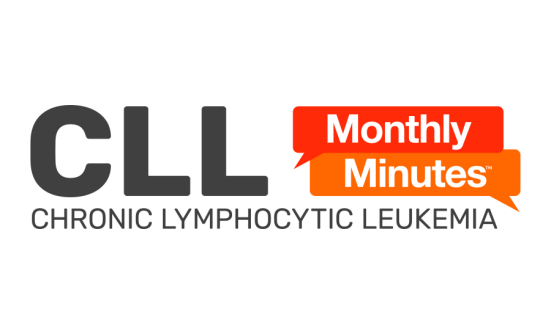For patients with chronic lymphocytic leukemia (CLL), the past several years have brought many advances in treatment options. Therapies that more effectively target cancer cells, like the Bruton tyrosine kinase (BTK) inhibitors ibrutinib and acalabrutinib, and BCL-2 inhibitors like venetoclax, as well as therapies that modulate a patient’s immune system, like obinutuzumab, have revolutionized the standard of care in patients with newly diagnosed and relapsed or refractory CLL.
Although these agents are effective, many patients still have suboptimal outcomes.1 Combined therapies, including ibrutinib plus venetoclax, and ibrutinib plus venetoclax plus obinutuzumab, have been associated with increased risk of infections and side effects affecting the heart.1
In an ongoing phase 2 clinical study, researchers are evaluating whether use of a newer BTK inhibitor, acalabrutinib, may be effective and well tolerated in patients with previously untreated CLL when combined with venetoclax and obinutuzumab.1
Participants in this study were in generally good overall health, with healthy kidney function, low risk for infection, and low risk for developing severe bleeding.1 Treatment with the 3 drugs was sequential, with participants receiving 1 month of acalabrutinib before starting obinutuzumab for 6 cycles.1 Two cycles into obinutuzumab treatment, patients started venetoclax, which was slowly ramped up to its therapeutic dose over 4 weeks.1 If, after 15 or 24 cycles of this therapy, no leukemia cells could be detected in the participants’ bone marrow (also called undetectable minimal residual disease), they could stop therapy with acalabrutinib and venetoclax.1
Interim data from 44 participants were recently presented, which showed that combined treatment with acalabrutinib, venetoclax, and obinutuzumab appears to be effective.1 Nearly 4 in 5 patients (78%) achieved undetectable minimal residual disease in their bone marrow after 15 months of therapy, and no patient receiving the therapy had shown disease progression, with most having been followed up for 19 months.1 Notably, 39% of these patients had mutations in the gene TP53, which are known to be associated with poor survival and poor response to chemotherapy in patients with CLL.1,2
The safety profile of this triple therapy has been favorable, with only a single reported case of a severely abnormal heart rhythm (atrial fibrillation)—a side effect that patients have experienced with ibrutinib treatment.1 Other serious side effects seen in this study included an abnormally low number of white blood cells (occurring in 4 patients), lung infection, elevated markers of heart damage, abnormally low levels of platelets, and abnormally high levels of blood calcium (1 patient each). Overall, 6 patients required dose reductions of their medications as a result of side effects, and 1 patient chose to leave the study after 6 months due to gastrointestinal problems.1
Given these promising results, the acalabrutinib, venetoclax, and obinutuzumab combination is now being studied in a larger, phase 3 clinical study that will evaluate the treatment in nearly 800 participants with previously untreated CLL.1,3 More information on the phase 3 study can be found at clinicaltrials.gov with the trial identifier number NCT03836261.
References
- Davids MS, Lampson BL, Tyekucheva S, et al. Updated safety and efficacy results from a phase 2 study of acalabrutinib, venetoclax and obinutuzumab (AVO) for frontline treatment of chronic lymphocytic leukemia (CLL) 2020. Presented at the 62nd American Society for Hematology Annual Meeting and Exposition; December 6, 2020. Abstract 2216.
- Campo E, Cymbalista F, Ghia P, et al. TP53 aberrations in chronic lymphocytic leukemia: an overview of the clinical implications of improved diagnostics. Haematologica. 2018;103:1956-1968.
- ClinicalTrials.gov. Study of acalabrutinib (ACP-196) in combination with venetoclax (ABT-199), with and without obinutuzumab (GA101) versus chemoimmunotherapy for previously untreated CLL. February 11, 2020. https://clinicaltrials.gov/ct2/show/NCT03836261. Accessed February 1, 2021.















